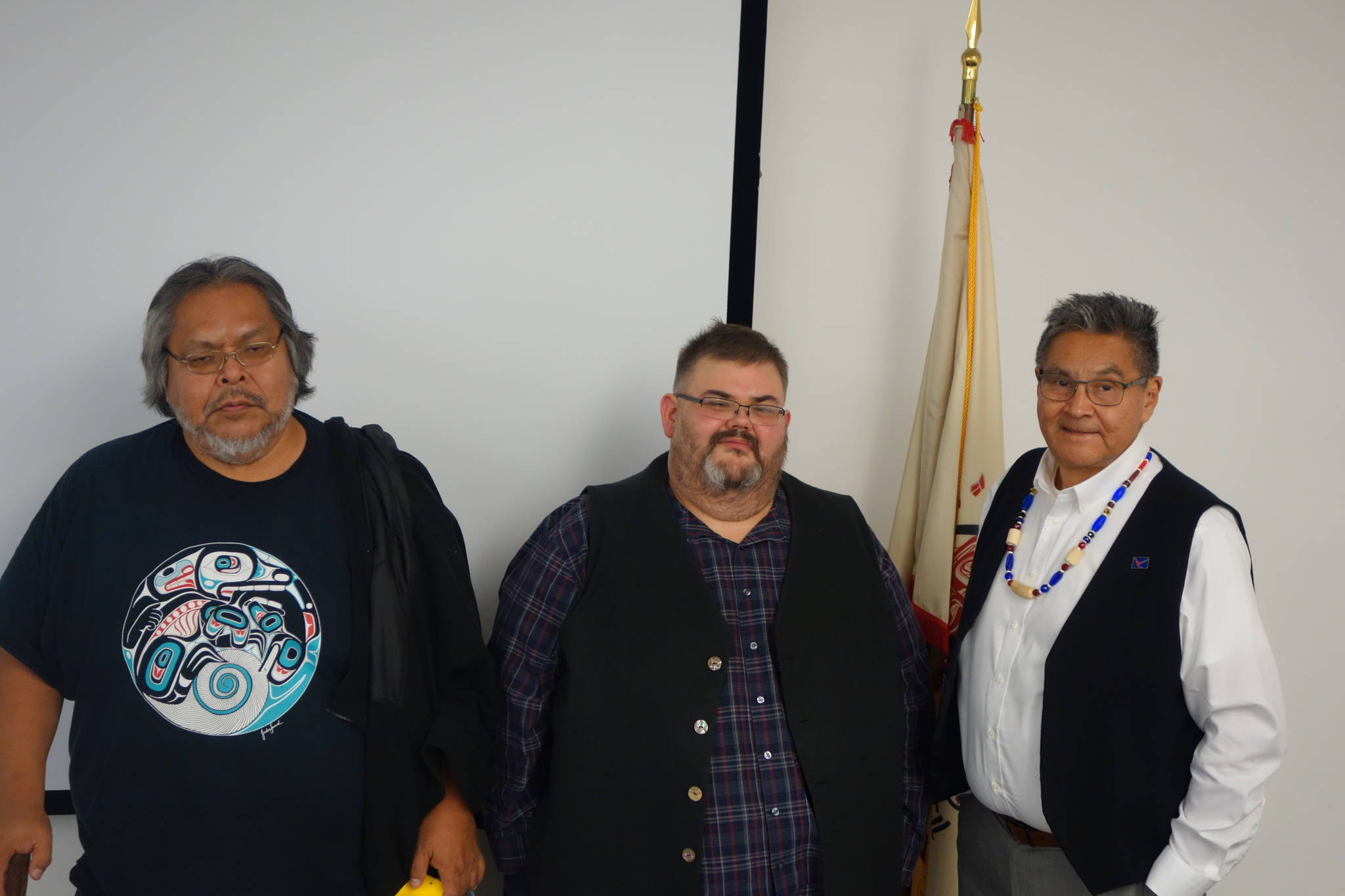The Central Council of Tlingit and Haida Indian Tribes of Alaska stood up its own Tribal Emergency Operations Center in April.
Now, it’s looking to the future and not just for tribal citizens in Juneau, but across the Southeast and beyond.
“My job is to predict and plan for disasters. With the coronavirus, there’s obviously no predicting it. It’s here. It becomes a matter of planning the response,” said Corey Padrón, the emergency manager for Tlingit and Haida’s Office of Emergency Management, which houses the TEOC, in a phone interview. “We’re partnered up with over 20 Native communities around Southeast Alaska. What we have is a regional tribal ops center so we can offer assistance to all the tribal communities.”
Formerly a first sergeant within the Village Public Safety Officer program, working in Ketchikan Padrón came onboard last month and is working with the rest of the TEOC to manage Tlingit and Haida’s response to the coronavirus, working to get PPE into the hands of outlying communities, creating logistical contingencies for an ongoing pandemic and preparing outlying communities for emergency breakdowns in shipping.
[Watch: Troopers make announcement about Sitka cold case]
“What we did was identify starter kits for our communities,” said Jason Wilson, TEOC incident commander, in a phone interview. “That starts with a storage unit, like a Conex. We’re gathering about a three-month supply of masks, gloves, hand sanitizer, thermometers, as well as things like dried food and some other areas.”
The Conex boxes, destined for more than 20 communities, will begin to go out shortly, Padrón said. The first ones are bound for Saxman, Angoon and Kake, Wilson said. The TEOC is accounting for nearly 35,000 tribal citizens, Wilson said.
“We’re trying to handle the current crisis of this pandemic as well as trying to look forward and anticipate the next crisis of this pandemic,” Padrón said. “This is a big part of that, is prestaging this equipment that we couldn’t get when things were hot and heavy and we couldn’t get stuff.”
The containers take a day or two to prepare once all the supplies are present, though that can take time, Padrón said. There have been many delays for things they ordered, sometimes months ago, Padrón said, with overstressed supply lines as many groups all try to order the same things.
“The smaller communities had supply chain problems already with food and such. We’re prestaging emergency food,” Padrón said. “We’re trying to put enough in place that each community has a bare week’s worth.”
The difficulties of getting to the smaller islands have had an upshot, Wilson said, shielding those smaller communities from the worst of the pandemic.
“It’s a weird time to be trying to live. We’re so fortunate to be in Alaska,” Wilson said. “We’re sheltered from a lot of stuff. We’ve got space. We’re able to spread out.”
The TEOC will only be stood up for the duration of the coronavirus pandemic, but the OEM is here to stay, Padrón said. His job will be to help look forward and be ready for future crises.
“Typically, if you look back at the history of declared disasters, you have your severe winter storms. We have our earthquakes,” Padrón said. “We have wildfires in the Anchorage area. There’s possible tsunamis.”
Both Wilson and Padrón urged people to take rational measures to keep the spread of the coronavirus contained, such as wearing masks, maintaining distance and washing hands and disinfecting commonly used spaces frequently. Wilson praised the hard work of the members of the TEOC and all emergency personnel, and Padrón thanked the leadership of Tlingit and Haida for their support setting up the office and looking out for the communities across the Southeast.
“If things aren’t looking bad in your area and you think it’s not that big a deal, it’s because people are doing the right thing,” Padrón said. “If you see these little surges, it’s because people have gotten lax about wearing their masks or maintaining distance.”
• Contact reporter Michael S. Lockett at 757-621-1197 or lockett@juneauempire.com.

